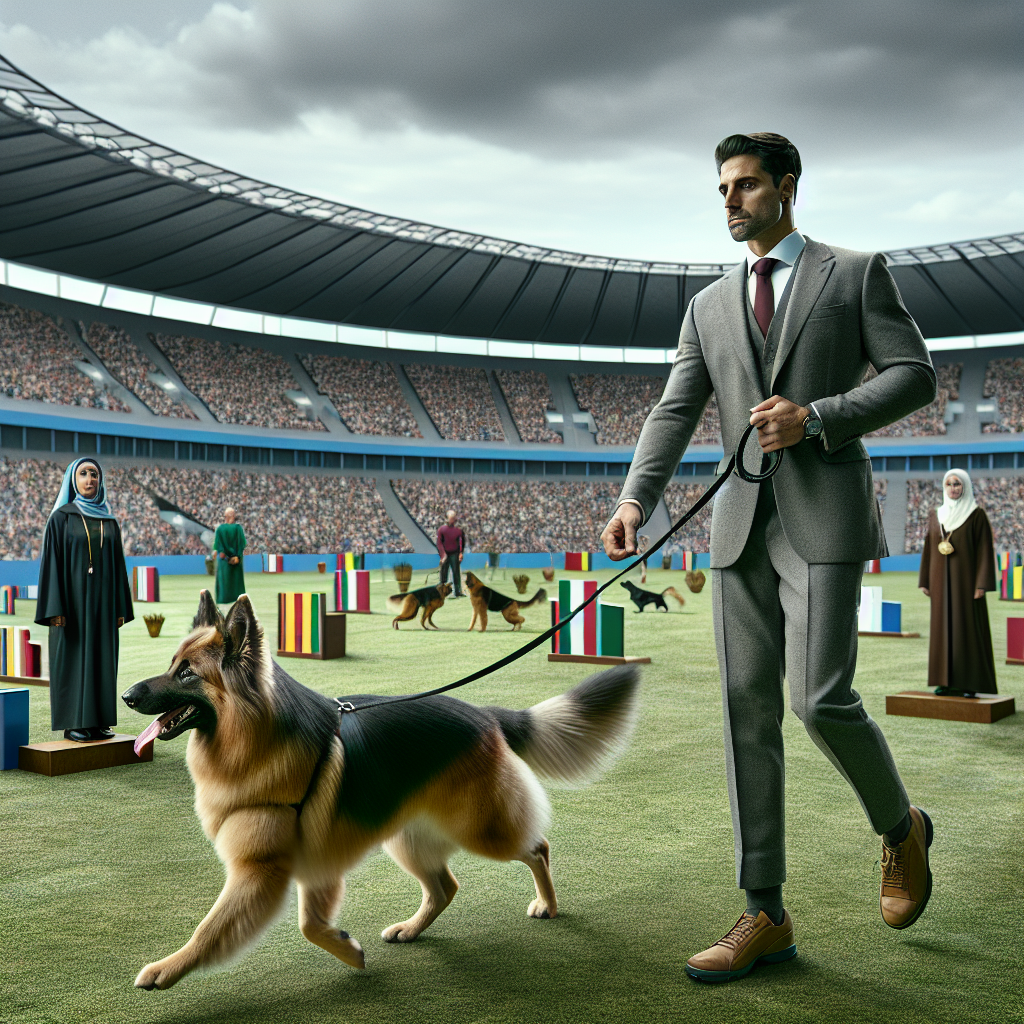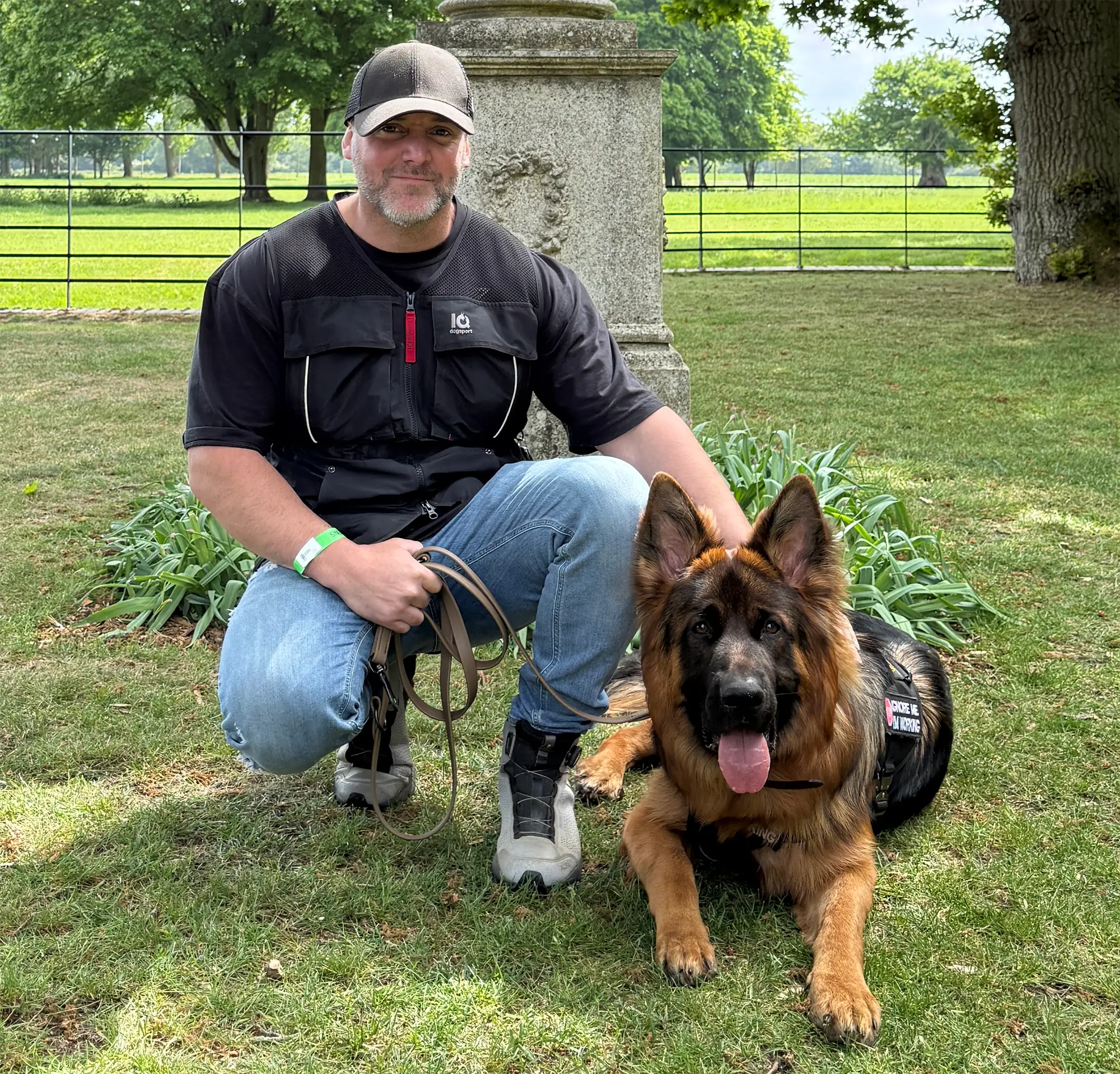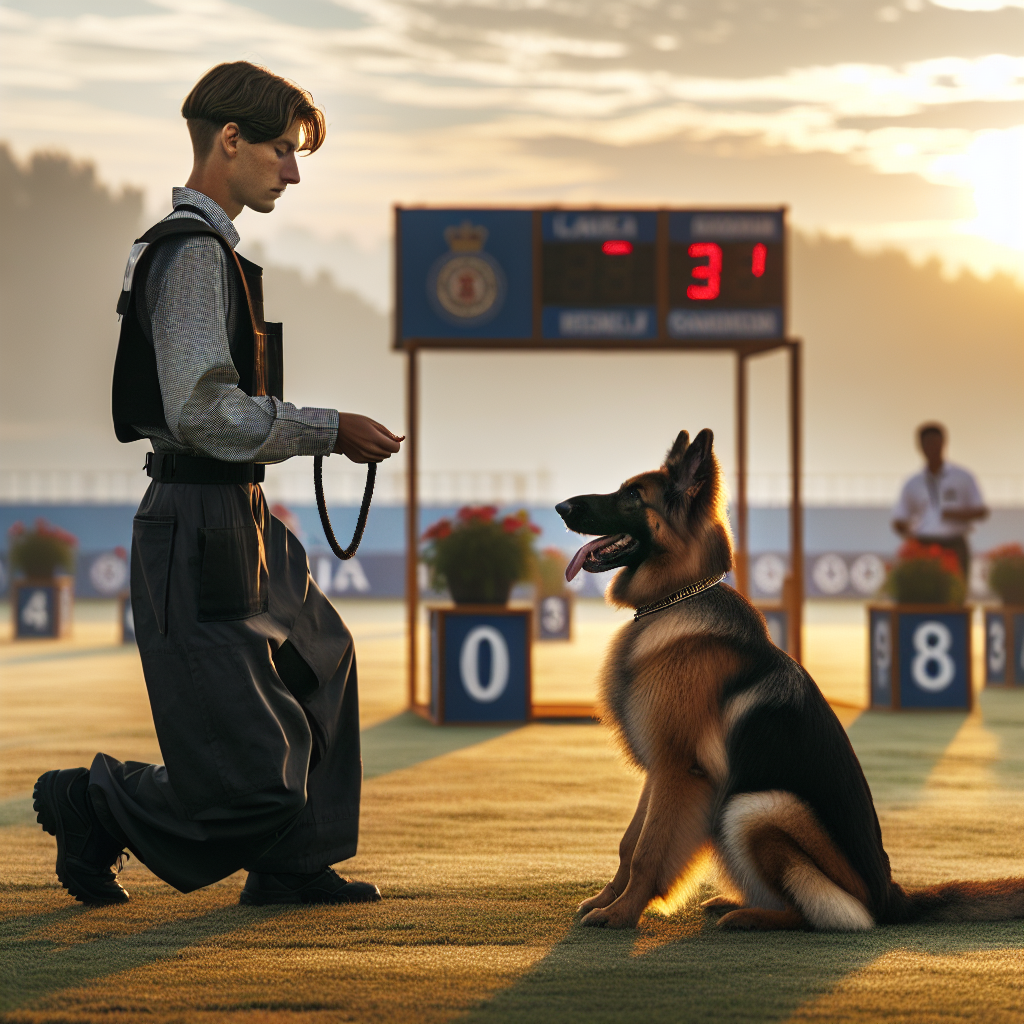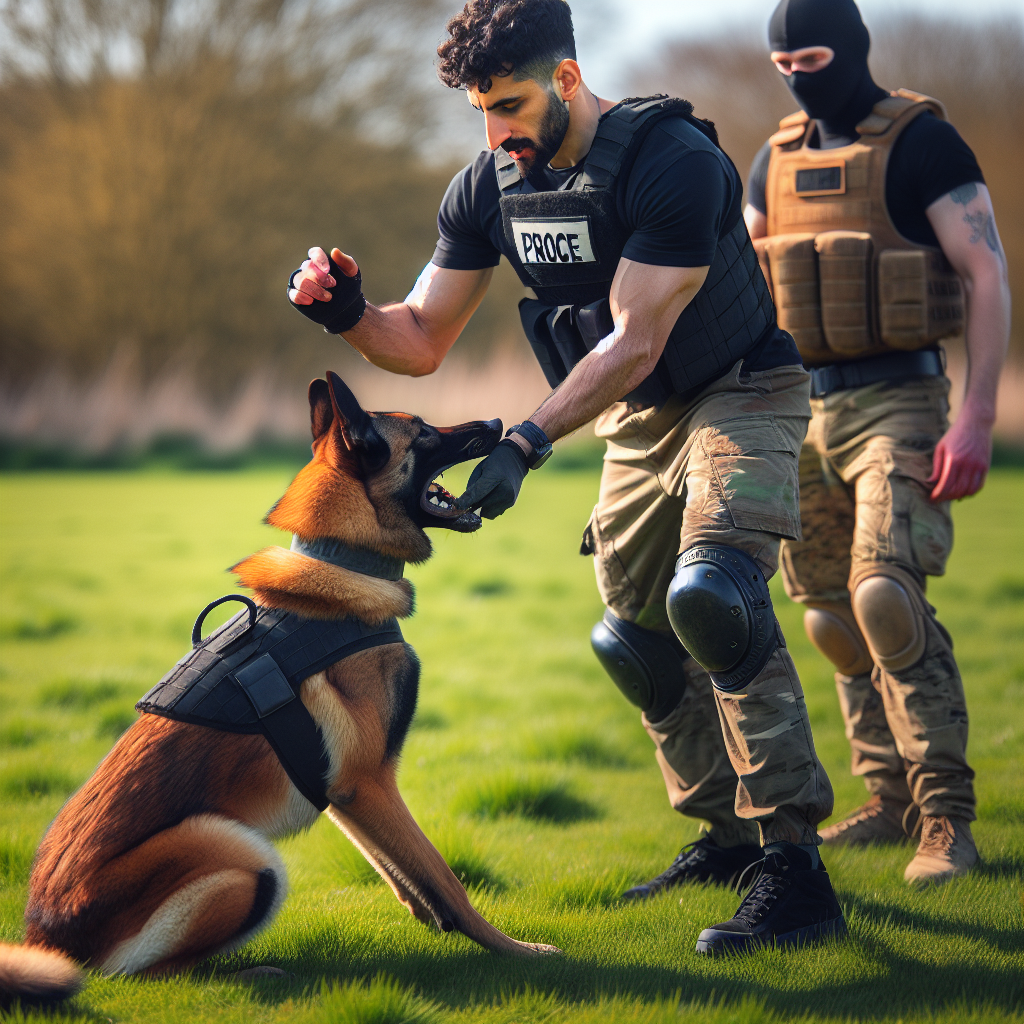IGP in FCI vs National Clubs

IGP in FCI vs National Clubs
Serious handlers quickly ask how IGP in FCI vs national clubs compare. The answer matters if you plan to title your dog, travel to trials, or prepare for breeding evaluations. At Smart Dog Training, we coach teams to succeed under any rule set using the Smart Method, so your dog performs with calm clarity in every phase. As a Smart Master Dog Trainer, I have prepared high drive dogs for both environments and seen how small differences change outcomes on the day.
This guide explains the structure of IGP, how FCI oversight works, how national clubs approach the same sport, and what those distinctions mean for your training plan. You will learn how Smart builds reliable tracking, precise obedience, and accountable protection that fit both systems. Most of all, you will see how to turn knowledge into consistent results.
What Is IGP
IGP is a three phase working dog sport. Phase A is tracking, where the dog follows a laid track and indicates articles with precision. Phase B is obedience, which shows engagement, focus, retrieves, jumps, and control under distraction. Phase C is protection, where the dog demonstrates courage, gripping quality, guarding, and clear outs under a helper. Each phase is scored for precision, attitude, and teamwork.
At Smart Dog Training, we treat IGP as structured education, not a one off event. We build a dog that enjoys the work and a handler who can guide with clarity. The Smart Method focuses on five pillars. We use precise commands and markers for clarity. We teach fair pressure and release so the dog understands accountability. We create high motivation through planned rewards. We progress step by step to add duration, distraction, and difficulty. We earn trust with predictable, calm handling. This approach travels well across IGP in FCI vs national clubs.
The Role of FCI in IGP
FCI is the international body that standardises IGP rules, judge licensing, and title recognition across member countries. When you trial under FCI, you follow a uniform set of exercises, score sheets, and field layouts. Judges are licensed through a controlled pathway and events follow published regulations. An FCI title is broadly recognised and portable within the FCI framework.
For handlers who plan to compete abroad or want consistent standards, FCI oversight brings predictability. It also sets expectations for helper work, stick testing, guarding style, and scoring philosophy. While there can be national interpretation within FCI, the baseline is stable. Our Smart Method training is designed to align with these expectations so that your dog’s behaviour meets the international standard.
How National Clubs Approach IGP
National clubs organise the same sport at a local level. They may reflect breed priorities, historic customs, or country-specific practices. In some regions, national clubs host most entry level trials and provide accessible pathways for new teams. They also manage helper development, event staffing, and judge invitations.
National club events often feel community led and more frequent in some areas. You may see small variations in field setup, helper style, or pacing of routines. Paperwork, eligibility, and scorebook handling can differ. In short, IGP in FCI vs national clubs can look very similar to a spectator, yet the fine print matters when you are on the line.
Key Differences That Affect Your Trial Day
Understanding the practical differences of IGP in FCI vs national clubs helps you plan training and avoid surprises. Here are the major areas to consider.
Rule Interpretation and Exercises
Both systems test tracking, obedience, and protection. Yet you may see differences in how judges weigh attitude versus precision, how strictly they enforce heel position, or how they value guarding style. Retrieve weights, jump heights, and heeling patterns are set by published rules, but local interpretation can affect where points are lost. Smart trainers prepare dogs for tight heel positions, strong focus, and clean transitions so minor variations do not rattle you.
Helper Work and Safety Standards
Helper technique influences the picture your dog presents. Some events emphasise energetic drives, others prefer steady pressure with predictable catches. Expect differences in how helpers cue drives, threaten, and present sleeves. We teach dogs to commit confidently, carry full and calm grips, and respond to pressure with clarity. That way the dog reads any helper and gives the same safe, confident performance.
Scoring Philosophy
At some events judges place high value on energetic, spirited style. At others, steadiness and precision dominate. You cannot change your dog’s temperament on the day. You can shape clear, repeatable behaviour that fits either lens. Our focus on clarity and progression means heel position, fronts, finishes, and retrieves are drilled to habit so that style points become a bonus rather than your only path to success.
Eligibility, Paperwork, and Scorebooks
IGP in FCI vs national clubs can diverge in administrative details. You may need a certain scorebook format, proof of age, or dog identification. Titles may be recorded differently. Before you enter, confirm the accepted documents and the recognition you need for your long term goals. Smart coaches guide you through this process so your dog is not turned away for a missing form.
Hosting, Scheduling, and Field Conditions
National events can run in smaller venues with varied tracking terrain. FCI events often enforce more uniform setups. Smart training builds generalisation, so your dog tracks both short cover and lush fields, he runs blinds with confidence in tight or open grounds, and he retrieves over jumps that look a bit different yet still meet regulation.
Why Differences Matter for Handlers
Your goals shape your choices. If you aim to travel across countries, FCI consistency can help. If your local calendar is packed with national events, that might be the quickest path to experience. If you breed or plan to certify for work, you must know which titles are recognised for your purpose. The Smart approach is to train for the highest standard so your dog passes anywhere.
IGP in FCI vs national clubs affects your training plan, your timeline, and your budget. It influences how you manage helper exposure and which trial you pick for a confident first outing. Smart Dog Training helps you map a progression that fits your dog, your schedule, and your ambitions.
The Smart Method for Success Across Systems
Smart Dog Training uses one progressive system for all IGP teams. It is structured to travel between IGP in FCI vs national clubs without friction.
- Clarity. We give the dog precise commands and markers so he knows exactly when he is correct. Clarity reduces conflict when environments change.
- Pressure and Release. We teach fair guidance on and off equipment and during protection so the dog understands responsibility, not fear.
- Motivation. We use food, toys, and access to work to build positive emotion. Motivation keeps the dog engaged when stress rises at trials.
- Progression. We layer distraction, duration, and difficulty in a stepwise plan. This makes performance reliable on new fields and with new helpers.
- Trust. We help you handle with calm predictability. Trust keeps your dog confident, especially during protection outs and during the retrieve routine.
With the Smart Method, you do not gamble on which judge or helper shows up. You bring a complete picture that fits both IGP in FCI vs national clubs.
Tracking That Holds Up Anywhere
Great tracking is quiet and methodical. We teach line handling, start routines, corner management, and article indication through shaping, pressure and release, and measured rewards. Dogs learn to settle into scent rather than chase points with speed. We proof on mixed vegetation, varied moisture, and different ageing to match what you may meet at national or FCI events. The result is a dog that keeps his nose down, holds pace, and nails articles even when wind or cover changes.
Obedience That Judges Reward
Obedience must be precise yet natural. We build heel position with micro criteria for head position, shoulder alignment, and footfall rhythm. We create fronts and finishes with clean target pictures. Retrieves are built with enthusiasm for the dumbbell, clean pickups, and calm delivery to hand. We add crowd noise, group members, and helper presence during down under distraction. This structure lets you handle the subtle differences of IGP in FCI vs national clubs without losing points to confusion.
Protection That Balances Power and Control
Protection is where handler nerves and environmental change can derail a routine. We teach a stable bark and hold, full grips, calm transports, decisive outs, and instant reengagement on command. Our pressure and release system gives the dog clear rules so he stays powerful yet responsible. We prepare dogs to read different helper styles, so they show the same picture at both FCI and national events.
Preparing for Your First Trial
Success begins long before you step on the field. Smart coaches help you choose between IGP in FCI vs national clubs for your debut. We consider your dog’s maturity, travel distance, and local support. We check paperwork, vaccinations, identification, and scorebooks well in advance. We run full dress rehearsals, complete with judge calls, group heeling, gun test where applicable, and neutral dog exposure. Your first trial should build confidence, not luck.
Ready to turn your dog’s behaviour around? Book a Free Assessment and connect with a certified Smart Master Dog Trainer - available across the UK.
Training Cycles and Periodisation
Smart Dog Training uses clear training cycles to build toward peak performance. A base phase creates foundation skills and fitness. A build phase adds intensity and duration. A peak phase rehearses the full routine under trial-like stress. A short recovery phase protects the dog’s body and mind. This planning keeps your dog eager to work and resilient, which is essential when switching between IGP in FCI vs national clubs.
Handler Skills and Ring Craft
Good handlers win points before the dog works. We teach you to map the field, manage equipment, and communicate with stewards without stress. You will learn consistent footwork for every heel pattern, a steady voice for commands and markers, and professional turnouts. We practice leashing and unleashing without fumbles, clear presentation of the dog at the start cone, and smooth transitions between exercises. Strong ring craft makes your team look the same at any venue.
Common Pitfalls and Smart Solutions
- Over arousal on the field. We build calm focus with patterning and clear markers so drive does not spill into noise or forging.
- Outs that fail under pressure. We teach reliable release with fair consequences and massive reinforcement for fast compliance.
- Sloppy retrieves. We fix grip, pickup, and delivery through targeted drills so the picture stays clean across systems.
- Tracking that is too fast. We slow the dog with line handling, planned article jackpots, and terrain selection to reward method over speed.
- Handler penalties. We coach body posture, cue timing, and transitions so you avoid unnecessary deductions that differ between judges.
How Smart Dog Training Supports IGP Handlers
Smart Dog Training runs results driven programmes for handlers who want reliable performance in IGP in FCI vs national clubs. Work with a Smart Master Dog Trainer for private coaching, group proofing sessions, and full trial rehearsals. We provide structured homework plans, helper coordination, and honest assessments so you can fix weak links before they cost points.
We mentor handlers at all levels, from IGP1 debuts to podium runs. Our nationwide network means you can train locally and still access advanced coaching for high drive dogs. If you want a clear path from where you are to your next title, we will map it with you.
Choosing the Right Path for Your Dog
Not every dog needs the full sport. Some dogs thrive in advanced obedience without protection. Others are born for all three phases. We assess drive, nerve, health, and handler goals. If your ambition is IGP in FCI vs national clubs, we will design a plan that suits your dog’s natural strengths and builds stability where needed. If a different pathway is smarter for your dog, we will tell you and offer a tailored programme that still delivers real world obedience and control.
FAQs About IGP in FCI vs National Clubs
Are FCI titles recognised by national clubs
Recognition depends on the club and the purpose of the title. Many national clubs accept FCI titles for progression or breeding, while others set their own criteria. We help you check the requirements so you enter the right events for your goals.
Can I switch between FCI trials and national club trials
Yes. Many teams move between both. The key is preparation. Train to a consistent standard so minor differences do not create stress. Smart Dog Training builds a picture that travels between IGP in FCI vs national clubs without confusion.
What paperwork do I need to enter
You will need dog identification, proof of age, vaccinations where required, and an accepted scorebook. Some clubs issue specific books. Our coaches will help you gather the correct documents before you enter.
How long does it take to earn IGP1
Timelines vary with the dog and handler. Many teams need 12 to 24 months of structured work. We focus on building strong fundamentals, not rushing. A solid foundation makes IGP in FCI vs national clubs smoother at higher levels.
Is IGP suitable for pet dogs
IGP requires strong nerves, drive, and a handler who enjoys structured training. Some pet dogs love parts of the work, especially obedience and tracking. We assess suitability and can offer advanced obedience programmes if full protection is not the best fit.
Do Smart trainers compete in IGP
Yes. Our coaches include experienced competitors who understand both FCI and national club environments. Training with a Smart Master Dog Trainer gives you practical insight, proven routines, and real trial craft.
How do helpers differ between events
Helper styles vary in energy, movement, and pressure. We prepare dogs to commit to the grip, carry calmly, and out cleanly regardless of the presentation. This is essential for success in IGP in FCI vs national clubs.
What if my dog struggles with outs on trial day
We rebuild the behaviour with clarity, fair pressure and release, and high reinforcement for fast compliance. We practice around different helpers and sleeves, then add stressors gradually so the out holds up in trials.
Conclusion
Whether you plan to compete locally or travel widely, understanding IGP in FCI vs national clubs helps you make smart choices. The standards overlap, yet small differences in judging, helper work, and administration can shape your results. Smart Dog Training gives you a proven system that produces clear, motivated, and accountable performance on any field. If you want a coach who speaks both languages and keeps your dog’s welfare first, we are ready to help.
Your dog deserves training that truly works. With certified Smart Master Dog Trainers (SMDTs) nationwide, you'll get proven results backed by the UK's most trusted dog training network. Find a Trainer Near You



